Research Lab Profiles
Professor Masaya Ishino
ATLAS Experiment
We use the LHC, the world's highest energy particle accelerator, to artificially reproduce and observe the state of the universe shortly after its birth. Our goal is to discover new physical theories and new particles. There are three things that are essential to making new discoveries: the world's finest experimental equipment, excellent ideas, and good luck.
By using the LHC, we automatically meet the first requirement -- and by an overwhelming margin.
We are implementing ideas for observing new physics by using applied research on state-of-the-art electronics capable of processing detector signals at high speeds, and for collecting experimental data while continually making improvements. We thus hope to meet the second requirement.
We're bringing together the brightest young researchers in the finest research environment so that we can engage in discussion, competition, and collaboration as we work together to learn about the unknown. The creative atmosphere is always electric. I'm sure that we will also be blessed by good luck, thereby meeting the third requirement. Come and let's perform experiments using the LHC together!
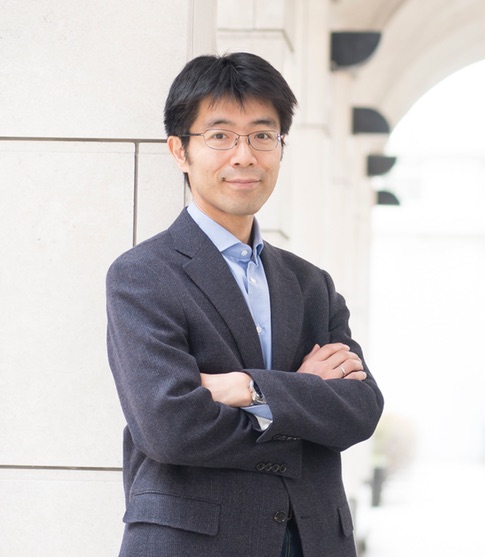
Professor Toshinori Mori
MEG Experiment, ILC Project
To verify the grand unification of the elementary particles and forces believed to have occurred in the early Universe (supersymmetric Grand Unified Theories (GUTs)), this research lab is leading the MEG international joint experiment, conducted at the Paul Scherrer Institute (PSI), investigating muon decay that is not possible under the Standard Model of elementary particle physics. The MEG experiment has drawn a lot of attention from all around the world, as it is the only experiment capable of researching the decay branching ratios predicted by ultra-high energy physics such as the GUTs or seesaw theory of neutrinos. My role as the primary investigator and spokesperson responsible for the entire international research group is to lead these important physics researches through a successful execution of the MEG experiment. We are currently preparing for MEG II, a further evolution of the MEG experiment. Our goal is to raise experimental sensitivity 10-fold and observe signs of new physics.
Furthermore, as the Japanese representative of the International Committee for Future Accelerator (ICFA) and chairperson of the Japan Association of High Energy Physicists (JAHEP), I look more than a decade into the future to consider and formulate next-generation core plans for global investigation at energy frontiers. I will continue to work on the ILC Project in these international committees and do my utmost to bring about its successful implementation in Japan.
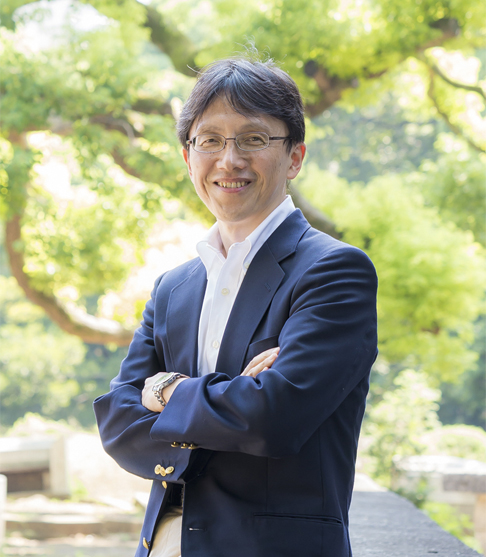
Professor Junichi Tanaka
ATLAS Experiment, Quantum AI
Our research lab participates in the ATLAS experiment, searching for new physics. We primarily focus on three research themes. The first is data analysis. We are moving forward with new research, such as the search for the next Higgs boson or supersymmetric particles, in our quest to directly discover the keys to physics that go beyond Standard Theory. The next major theme is research and development aimed at upgrading detectors. We are updating and commissioning trigger read-out of liquid argon electromagnetic calorimeters and developing its FPGA firmware for fast computation of energy. From 2022 onwards, we will be taking on new research themes.
Computer science is also an important theme for future physical analysis. The high-luminosity LHC, which will become operational in 2027, and future large-scale experiments will produce almost unimaginably massive amounts of analysis data. In preparation for this, research and development is underway using cutting-edge IT technologies such as artificial intelligence, quantum computing and cloud computing. New ideas born of flexible thinking are essential in this research field.
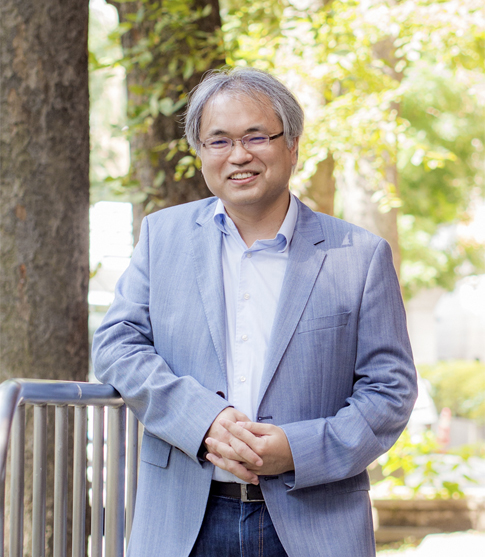
Professor Koji Terashi
ATLAS Experiment, Quantum AI
As a recognized leader for physics analysis in ATLAS at CERN, I have been leading search for new phenomena, including Extra Dimensions and Supersymmetry. The LHC will enter into a new era of "High-Luminosity LHC" in 2027, which will produce large amount of data, corresponding to 20-30 fold increase with respect to the data collected so far. With such large dataset, we might witness unexpected discovery of new physics. To ensure such discovery, a new computing paradigm is required to cope with those unprecedented data.
Therefore, I am working on quantum computing and its application to machine learning and simulation. Quantum sensing is also considered as another interesting and powerful probe to new phenomena beyond the electroweak scale. My main aim is to realize quantum computing application to fundamental science and real-life problems, by focusing on the layers of quantum algorithm, quantum software and qubit technology, and their inter-connections.
Quantum information science and technology are growing rapidly, but we are just at the door to a vast, uncharted quantum world. Anyone who wants to explore this exciting quantum landscape is very welcome!
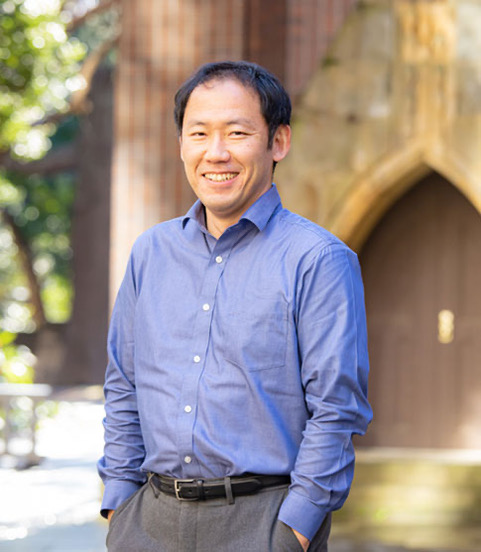
Associate Professor Wataru Ootani
MEG Experiment, ILC Project
The research interest of our lab is in experimental particle physics with particle accelerator aiming at elucidating the ultimate laws of the Universe. We actively engage in research activities as well as dedicating ourselves to educating students to be experimental physicists with various expertise for detector R&D and physics analysis.
There are two primary research projects in our lab. The first is the MEG experiment in search for μ→eγ with the world's highest sensitivity, which would be a definitive evidence of new physics such as supersymmetric grand unified theory if discovered. The second is the International Linear Collider (ILC), which is a next-generation international project with an electron-positron linear collider.
As the physical analysis coordinator of the MEG experiment, I have led physics analysis and achieved an unprecedented search sensitivity which is thirty times higher than the previous experiment. We are currently leading the development and construction of detectors for the upgraded experiment MEG II with much higher sensitivity. The MEG II experiment is to start soon, having high expectations for the discovery of new physics beyond the standard model.
For the ILC Project, We are working hard for the realization of the Project, focusing primarily on the development of high-granularity calorimeters based on a novel concept for the ILC detector (ILD).
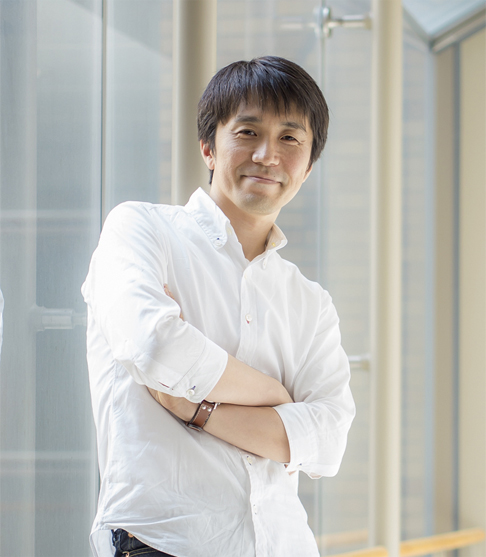
Associate Professor Yasuyuki Okumura
ATLAS Experiment
We participate in the ATLAS experiment and carry out research through international collaboration and in the midst of international competition with the aim of discovering signs of entirely new natural phenomena in particle experiment data. We use experimental data to investigate mutual interaction between elementary particles with the aim of creating a new conception of nature from the perspectives of the structure of time-space, the structure of vacuums, and symmetry. In addition to data analysis, operating existing experimental devices and developing new ones is an essential skill for experts. We conduct research through our dynamic team, which is working on the frontlines, both operating the large-scale of the current system while developing the core technologies that will be used in future experiments. We aim to develop personnel with comprehensive research strengths that encompass everything from developing state-of-the-art devices and gathering experimental data to analyzing physical data.
Research is constantly advancing. Let us take on the new challenges that arise each day, such as combining our knowledge to create new ideas and solve problems within the time constraints due to experiment and machine operations. Let us enjoy making rapid progress through small yet steady steps at CERN.
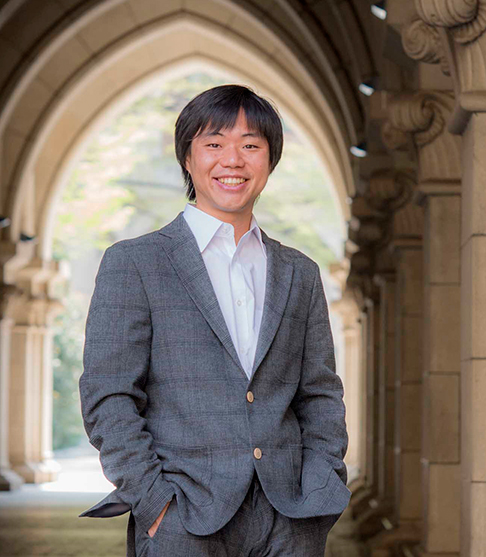
Associate Professor Ryu Sawada
ATLAS Experiment, Quantum AI
We participate in the ATLAS experiment at CERN and aim to discover new particles, especially candidates for dark matter predicted by supersymmetry theory. In addition to operating the ATLAS Regional Analysis Center, I also conduct research with the goal of improving computation performance for the high-luminosity LHC.
In our search for new particles, we have focused our attention on models that extend the lives of new particles. Our research lab focuses on applying state-of-the-art technologies such as machine learning and quantum computing to elementary particle physics. We hope to develop triggers using machine learning-based software and improve our ability to search for new particles. We are also researching quantum algorithms that can be applied to elementary particle research and developing computation methods for implementing them in actual quantum computers.
Combining creativity and data analysis technologies will be essential for achieving advances in this innovative research. We support the efforts of those with a desire to learn and apply state-of-the-art computing technologies to make new physics discoveries.
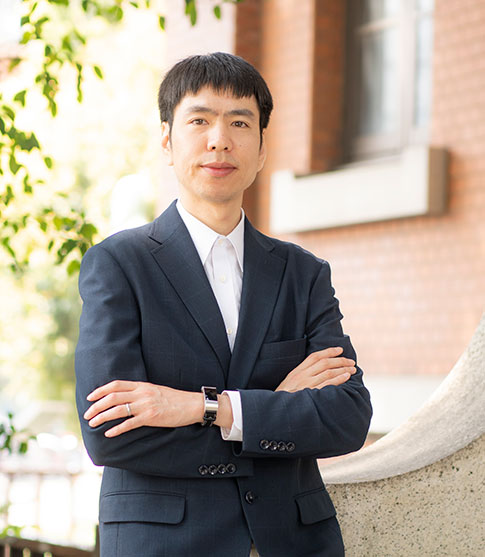
Project Associate Professor Taikan Suehara
ILC Project, Quantum AI
New experiments and new technologies are essential for new discoveries. The biggest focus of my research is to realize a Higgs Factory, a next-generation large-scale collider project, by contributing physics and detector studies utilizing state-of-the-art technologies of deep learning and instrumentation.
Higgs Factories will measure the Higgs boson discovered at the LHC in 2013 in great details, paving the way for the elucidation of unknown new particles and the structure of spacetime. Several Higgs factory projects are competing for realization around the world, among which we are eager to realize the ILC project, which is gathering global effort from all over the world to establish the facility in Japan.
A deep learning algorithm called Transformer, which is the basis of ChatGPT, etc., is revealing great possibility of completing a lot more complicated tasks than before by increasing training data size and complexity of the networks by many orders of magnitudes. I aim to apply this to particle physics, which leads to a challenge of developing a universal "brain" doing various essential tasks for particle physics with single network, like humans. Higgs factories, whose detectors have much higher resolution to detailed structure of the particle phenomena than those of past experiments, should be good playgrounds for such an endeavor.
I look forward to working with you with passion to "pave the way" in our new laboratory!
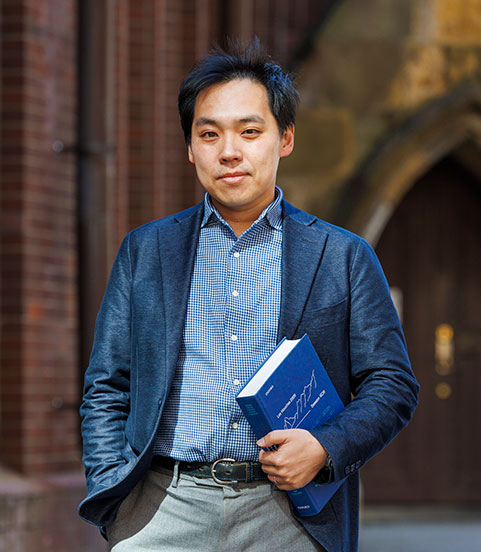
Associate Professor Nobuyuki Yoshioka
Quantum AI
As both quantum and classical information technologies evolve at an astounding pace, the path to uncharted quantum simulations is now opening before us. The ultimate goal of our research is to fully understand and control the universal behavior of quantum many-body systems.
One of our focuses is quantum computing for scientific discovery; we work on a wide range of fields such as the development of quantum algorithms, both for near-term and long-term, and large-scale simulations using actual quantum devices. We are also pioneering the cutting-edge application of machine learning techniques to simulate quantum many-body systems.
To drive such research forward, constructive collaborations are essential?bringing together individuals with a wide array of skills, from physicists brimming with scientific curiosity to engineers pushing the boundaries of technology. We are eagerly looking forward to meeting like-minded colleagues who will join us in exploring the unexplored world of quantum.
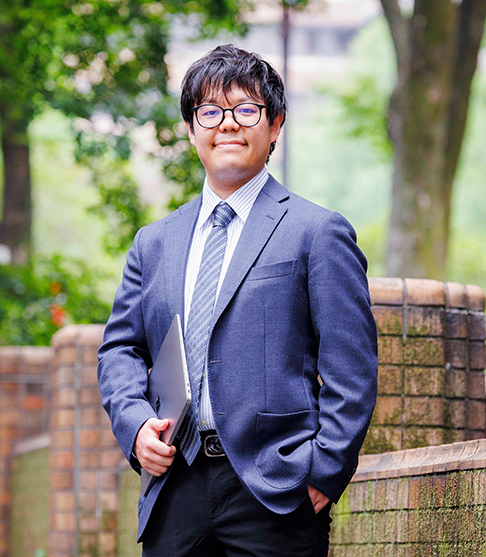
Researcher Profiles
ATLAS Experiment
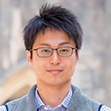
Assistant Professor
Tomoyuki Saito/CERN
Tomoyuki Saito aims to further develop elementary particle physics and unravel the mysteries of the beginning of the Universe through the discovery of supersymmetric particles and dark matter. He works on upgrading detector and trigger electronics in order to explore higher energy physics.

Assistant Professor
Takuya Nobe/CERN
Takuya Nobe explores new physics beyond the Standard Model, such as extra dimensions, and perform verification of the Higgs mechanism using the final state of boson pairs. He also operates online trigger systems for data acquisition.
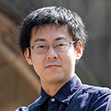
Assistant Professor
Masahiko Saito
Masahiko Saito aims to discover new physics by applying new technologies such as machine learning and quantum computing. He also operates and improves a grid system for processing large-scale data.
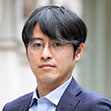
Project Assistant Professor
Masahiro Morinaga
Masahiro Morinaga develops new types of artificial intelligence and machine learning algorithms that will assist in the discovery of new physical phenomena that we have not predicted. He also operates tracking detectors and searches for dark matter candidates predicted by supersymmetry theory.
MEG Experiment

Assistant Professor
Toshiyuki Iwamoto/PSI
Toshiyuki Iwamoto carries out the MEG II experiment as run coordinators and technical coordinators and is responsible for the operation and calibration of liquid xenon gamma ray detectors. He aims to further increase experimental sensitivity and discover new physics.
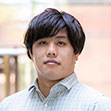
Project Assistant Professor
Sei Ban/PSI
Sei Ban contributes to stable MEG II experiment execution over long term by developing an annealing method for recovering detection efficiency of optical sensor, MPPC. He also develops a correction method of non-linear response of MPPC. He also aims to develop machine learning algorithm to reduce gamma-ray pile-up events by image recognition.
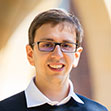
Project Assistant Professor
Lukas Gerritzen/PSI
Lukas Gerritzen is committed to ensuring the stable and secure operation of the MEG II liquid xenon calorimeter, along with its calibration. Moreover, he contributes to the development of novel detectors for a future μ→eγ experiment, encompassing both simulation and hardware studies.
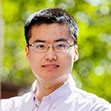
Project Assistant Professor
Atsushi Oya/PSI
Atsushi Oya takes the initiative in the physics analysis working group in the MEG II experiment. He also explores the application of state-of-the-art analysis techniques including machine-learning approaches to improve the positron track reconstruction and detector calibrations.
Quantum AI Technology
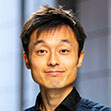
Assistant Professor
Yutaro Iiyama
Yutaro Iiyama explores applications of quantum computing and machine learning for particle physics. He also investigates novel analysis techniques and improvements to the ATLAS computing systems in preparation for the massive increase of the data volume at HL-LHC.
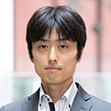
Project Assistant Professor
Tatsumi Nitta
Tatsumi Nitta develops quantum sensors with superconducting qubits. He also aims to apply quantum sensors to fundamental physics experiments such as axion dark matter and high-frequency gravitational waves searches.
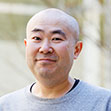
Project Assistant Professor
Kazuyuki Nakayama
Develop new research areas of quantum spacetime using optical metamaterials, based on condensed matter physics. Clarify the fundamental properties of artificial black holes and pseudo-gauge fields, and develop novel quantum spacetime devices.
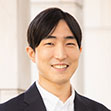
Project Researcher
Toshiaki Kaji
Toshiaki Kaji develops and optimizes quantum computing circuits and quantum algorithms. He also explores the possibility of applying quantum algorithms to experiment on high-energy particle physics in an object or event reconstruction.
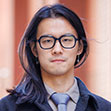
Project Researcher
Zhelun Li
Zhelun Li study the application of quantum machine learning techniques with symmetries in the field of high energy physics. My work also involves simulating quantum many body systems with variational quantum circuits.
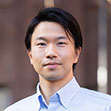
Assistant Professor
Toshiaki Inada
Toshiaki Inada develops superconducting and optical devices used in quantum computers. He also uses quantum sensors to perform research regarding artificial black holes and the quantum nature of gravity, and to search for axions.
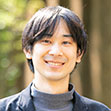
Project Assistant Professor
Lento Nagano
Lento Nagano studies possible application of quantum computers / algorithms to simulation of quantum field theories / quantum many body systems. He also estimates computational costs and errors in quantum simulation and considers ways to reduce them.
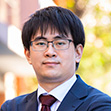
Project Researcher
Wai Yuen Chan
Chan Wai Yuen explores the application of quantum computing for particle physics. Especially the application of quantum annealing machine and quantum machine learning algorithm for particle tracking. He also aims to discover the possibility of quantum computing application for jet reconstruction and heavy-flavour identification.
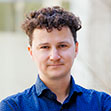
Project Researcher
Kirill Shulga
Kirill Shulga explores the effects of relativistic quantum information, particularly focusing on Hawking radiation in superconducting quantum metamaterials. To achieve this, he develops new types of superconducting circuits and qubits with unique properties.
ILC Project
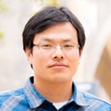
Assistant Professor
Junping Tian
In order to make the physics case of the ILC, Junping Tian is researching the precision Higgs physics, including Higgs boson self-couplings, etc., to elucidate the mysteries of electroweak symmetry breaking. He is also working on the detector optimization for the ILD on the physics performance.
Tabletop Experiments
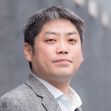
Assistant Professor
Toshio Namba
Toshio Namba searches for phenomena that deviate from the standard model by using positronium, the lightest atom, consisting of only a paired electron and positron. He is also developing detectors that will produce future breakthroughs.
Other elementary particle experiments
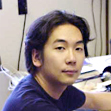
Assistant Professor
Yoshio Kamiya/Graduate School of Science
Yoshio Kamiya performs tests of gravity using slow neutrons, searches for undiscovered mutual interactions and new particles, tests of non-perturbative nonlinear QED under intense laser fields, and developments of detectors for future lepton colliders.
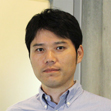
Assistant Professor
Yoshiyuki Onuki/Graduate School of Science
Yoshiyuki Onuki aims to detect phenomena that go beyond Standard Model by measuring matter-antimatter symmetry breaking using B mesons and performing experiments aimed at discovering new elementary particles. He is developing semiconductor radiation detectors that can be used in future high-energy experiments.
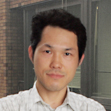
Assistant Professor
Yoshizumi Inoue/Graduate School of Science
Yoshizumi Inoue is involved in various projects including an experiment aiming at the direct detection of hidden-photon dark matter, development of a mobile neutrino detector, and obsevation of gamma-ray bursts from the thunder clouds utilizing a neutrino detector.
Graduate Enrollment
(Unit : people)
| Number of research labs |
Doctorate degree |
Master's degree |
Total | |
|---|---|---|---|---|
| 2024 | 8 | 20 | 20 | 40 |
| 2023 | 8 | 17 | 23 | 40 |
| 2022 | 8 | 17 | 18 | 35 |
| 2021 | 9 | 16 | 20 | 36 |
| 2020 | 8 | 19 | 21 | 40 |
| 2019 | 8 | 21 | 17 | 38 |
| 2018 | 7 | 22 | 16 | 38 |
| 2017 | 9 | 24 | 18 | 42 |
| 2016 | 9 | 22 | 18 | 40 |
| 2015 | 8 | 18 | 24 | 42 |
| 2014 | 9 | 16 | 24 | 40 |
| 2013 | 9 | 17 | 19 | 36 |
| 2012 | 9 | 19 | 19 | 38 |
| 2011 | 9 | 21 | 17 | 38 |
| 2010 | 9 | 19 | 16 | 35 |
Degrees Conferred
(Unit : people)
| Doctorate degree |
Master's degree |
Total | |
|---|---|---|---|
| 2024 | |||
| 2023 | 1 | 10 | 11 |
| 2022 | 4 | 7 | 11 |
| 2021 | 2 | 13 | 15 |
| 2020 | 7 | 7 | 14 |
| 2019 | 5 | 8 | 13 |
| 2018 | 2 | 8 | 10 |
| 2017 | 6 | 10 | 16 |
| 2016 | 6 | 10 | 16 |
| 2015 | 1 | 13 | 14 |
| 2014 | 3 | 10 | 13 |
| 2013 | 5 | 7 | 12 |
| 2012 | 8 | 11 | 19 |
| 2011 | 3 | 6 | 9 |
| 2010 | 5 | 10 | 15 |
* Including Asai Lab. & Komamiya Lab.(until 2017), Graduate School of Science